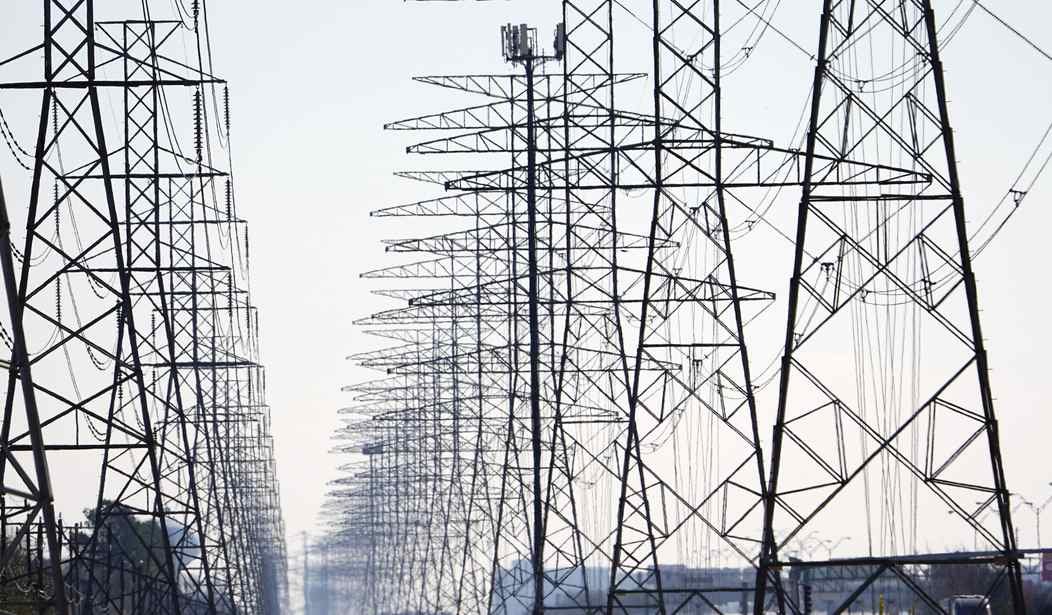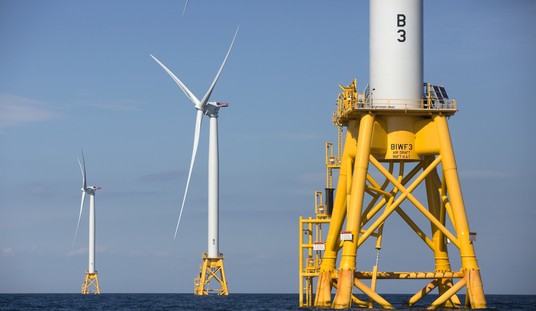Earlier this year, construction began on an ambitious clean energy project called New England Clean Energy Connect. The plan involved importing hydroelectric power generated in Canada down through Maine and into Massachusetts. Since hydroelectric energy has almost no carbon footprint, this made the environmentalists happy and the new supply of juice would take a lot of stress off of parts of the New England electrical grid. But then a funny thing happened on Tuesday. In Maine, voters passed a referendum blocking the construction of the power line, citing fears that it was cutting down large swaths of unspoiled forest lands in their state “with little net benefit for Maine.” Sixty percent of Maine voters supported the referendum. But the power line is already under construction and now one of the companies involved in the project is suing the state, claiming that the referendum is unconstitutional. (Boston Globe)
The day after Maine voters passed a referendum to reject a transmission line that would bring hydroelectric power from Canada to Massachusetts, one of the companies behind the project sued to overturn the vote.
The transmission line, known as the New England Clean Energy Connect, is a key part of Massachusetts’ plans to combat global warming. The hydroelectric power would help slash carbon emissions in the state by half before the end of the decade.
But the $1 billion project, which has been under construction for months, was dealt a serious blow Tuesday when 60 percent of Maine voters approved Ballot Question 1 to kill the power line.
It’s difficult to see why there is such widespread opposition to this project in Maine. I can understand how people don’t want to see their forests chopped down, a topic I totally sympathize with. But the developers have taken great pains to ensure that construction of the power line is being done in the least invasive way possible and we’re really only talking about a corridor through the forest that’s less than 100 yards wide. (The distance you would need to prevent trees from taking down the lines during a storm.) A matching number of trees can be planted on the outer edges of the forest to bring the impact close to net zero.
As far as providing “little net benefit to Maine” goes, that’s a rather dubious argument. The project was structured in a way that nearly all of the jobs that were created are in Maine and the state also has access to some of the energy being delivered. The number of jobs is in the thousands and many of them will continue long after construction is completed. The developers also agreed to pay more money into vocational and training programs for Maine residents.
It’s unclear what state and federal constitutional impediments there are to the plan, but if they existed, it seems as if someone would have brought that up during the years of planning that went into this project. For that matter, a challenge to the construction project should have been handled before the first ground was broken, shouldn’t it? Scheduling a referendum after the line has already reached nearly a third of the way through the state seems to be a case of closing the barn door after the horses are mostly gone.
The one downside to this agreement is that we’re once again embracing solutions to our energy needs that make us reliant on foreign countries when the United States is perfectly capable of generating its own electricity if our government would just stay out of the way. Granted, if we have to be reliant on anyone else, I suppose Canada is a better option than Iran or China. Also, our trade agreements with Canada are far more agreeable, so it’s not the end of the world. If the Canadians have that much hydroelectric energy to spare, it at least saves us the trouble of having to construct another dam.
It’s tough to say how this court case will play out. Clearly, the voters of Maine have a right to make their voices heard on a project like this, but they may have waited too long to take this action. Meanwhile, construction on the power line continues despite the passage of the referendum pending further action by the courts.








Join the conversation as a VIP Member